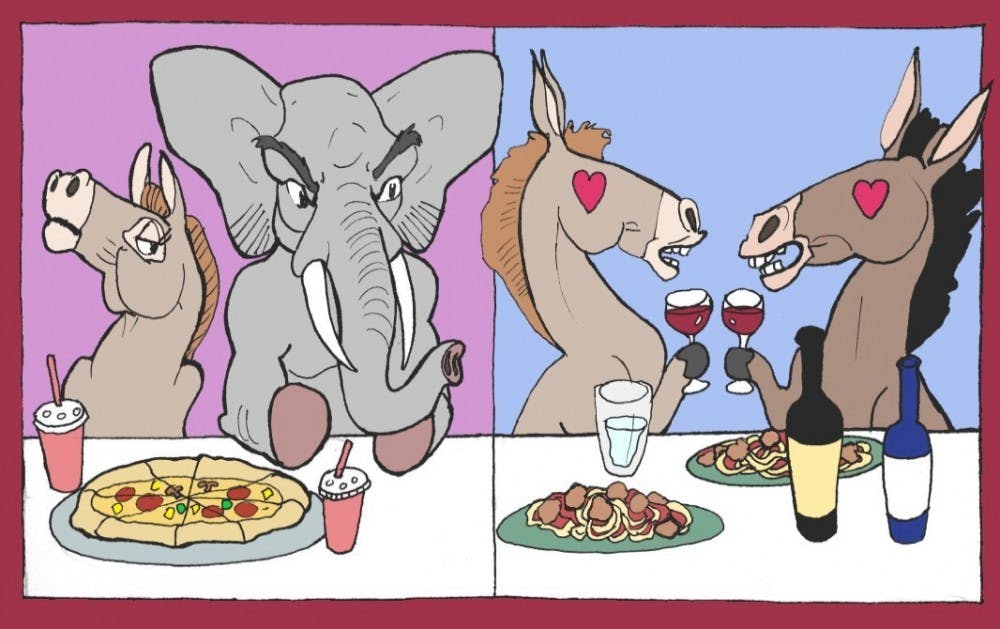“The two things you should never talk about on a first date are politics and religion.”
At some point, we have all heard this advice from our elders. However, wanting to understand someone's political views is not just normal, but an integral way to further comprehend who our potential partners may be.
A Match.com study found that 80% of millennials believe it is necessary to discuss these subjects on the first date.
Topics too taboo to discuss in a relationship are not just an outdated concept, remanent of a generation who resisted progress, but obscure and not reflective of the nuances that actually make up our individual personalities.
Asking someone to separate politics from the person is frivolous because our experiences can and often will greatly influence our beliefs.
Amber Hutchins, a faculty professor at the Walter Cronkite School of Journalism and Mass Communication, said, “Our political views are often entangled with many of our other values, so especially if you’re hoping for a long-term relationship, it’s going to be a challenge perhaps to make those huge decisions together if you’re views are vastly different.”
Taking myself as an example, I could never date someone who was against immigration as I come from a family of immigrants. For myself and many others in similar positions, I cannot justify a scenario where someone is so charming that I would overlook that they wanted my family to get deported.
Cherry-picking who our politics apply to is a sign of an undeveloped opinion with a lack of foundation. I do not want to focus my time and energy into dating someone where I would have to explain every belief.
If a student does not feel like someone is worth pursuing because it would include additional emotional labor and explanation, that decision should not be villainized.
“Taking the time to think long-term is that something that you want to work on and dedicate the time and energy that it’s going to take to do so because it will be work for sure,” Hutchins said.
Young adults are paying attention to politics, and well-formed opinions do not come about without conversation and research. However, that is not to say that you need these political debates in your relationship.
Everyone’s preferences on what they want in a relationship may vary, and there certainly may be students who enjoy political discourse in a relationship, but for many others, a relationship may be one of the only places where they feel like they can escape and take a break.
That is also not to say that discourse won’t occur for couples who may be on similar pages, as Hutchins points out “you are never going to have exactly the same views as someone on all issues.”
However, there can be issues where disagreeing is a deal breaker.
There are alternative factors that can influence the development of our political views and the exposure of different perceptions. Some of these alternative factors or influences include friends, family members and our own individual research in classes or real-world experiences.
Even for those of us who prefer to date people with similar political views, we are not our significant others and have individual differences in other respects. Our growth and development politically is not limited to the discourse with our partners.
Reach the columnist at jguzma19@asu.edu or follow @JennyGuzmanAZ on Twitter.
Editor’s note: The opinions presented in this column are the author’s and do not imply any endorsement from The State Press or its editors.
Want to join the conversation? Send an email to opiniondesk.statepress@gmail.com. Keep letters under 500 words and be sure to include your university affiliation. Anonymity will not be granted.
Like The State Press on Facebook and follow @statepress on Twitter.




